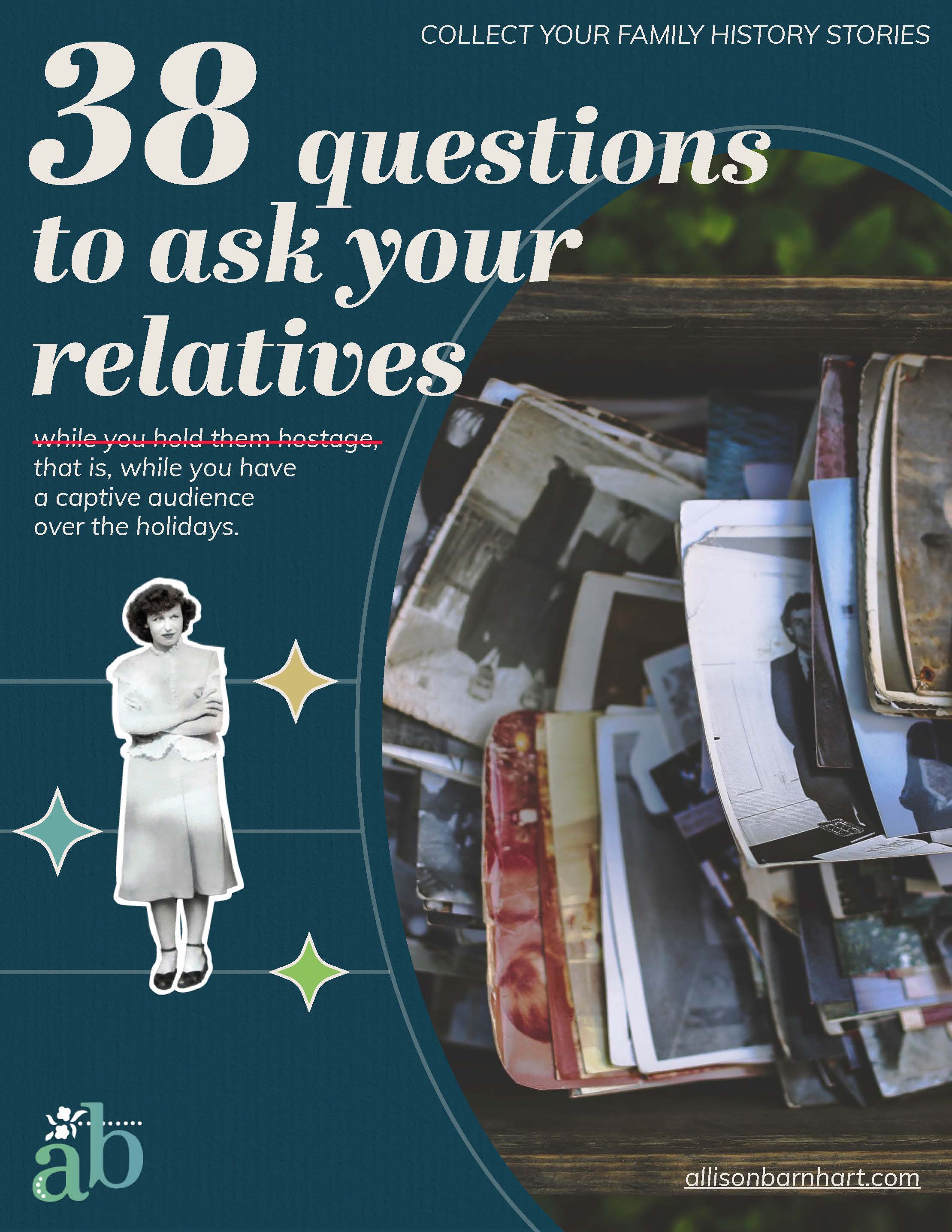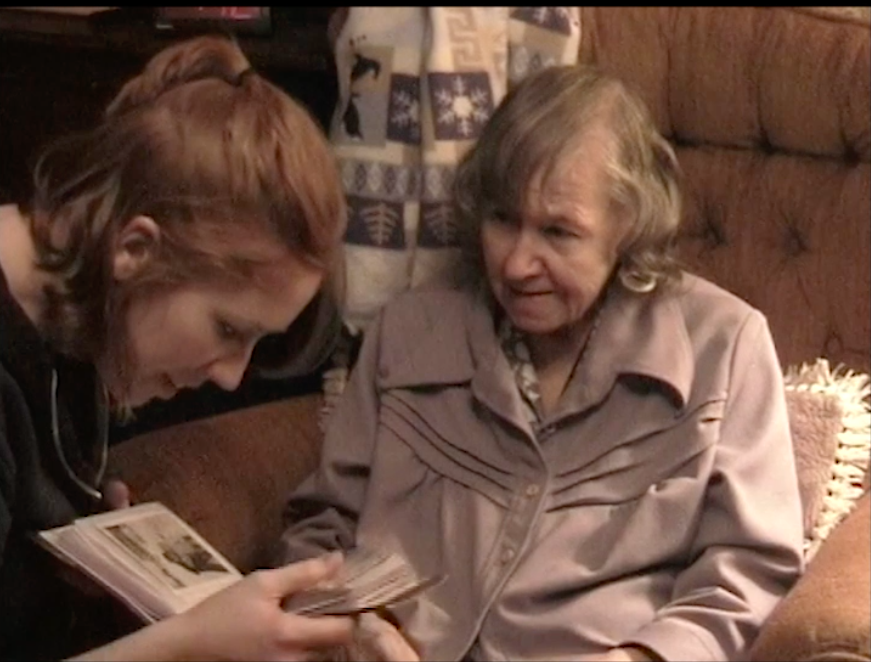I wrote previously about “interviewing” your late ancestors. Even though they have passed on, they can still tell you about their lives, but you have to pay more attention and follow the clues. It’s about how you connect records and your ancestor’s paper trail with any artifacts and places, then using your five senses and your imagination.
Sometimes genealogists have a tendency to focus so much on the lives of people that aren’t with us any more that we neglect to record those that have stories to share that are right here in the flesh. Give those future generations a solid amount of history—while you have the opportunity!
Interviewing a family member doesn’t have to be done in just one way. People learn and express things differently so spend some time planning what angle would work best for which family member. Maybe one will be more relaxed with just a natural conversation they are open to you recording. Another might do better taking a prompt journal or questionnaire of the questions you’d like to have them answer.
1. Sit down with your relative and pull out old albums, home movies, etc. Ask them to tell you about the people in them and what they were like. Are they able to expound upon what you are seeing in the photos or films? Many times looking at things from the past will spark memories they forgot they even had. Take notes or record audio or video while they share with you so you don’t forget all the details and nuance. (You will forget!)
2. Ask them to do an activity or hobby with you that they used to do. If they aren’t physically able to, ask them what they loved about it. Ask for advice on where to start or if they could be your “coach” for the afternoon. This could be anything from gardening, photography, cooking, baking, woodworking, or making music—to hunting, playing sports, arts and crafts, painting, crocheting, traveling, raising animals, or restoring cars.
They will light up at your interest and you’ll get to see the “kid” in them again while you get to connect with them and learn something new.
3. Go for a tour drive. This one is especially fun (and convenient) if you are near the location where your relative grew up. Ask a third person to come along as either the driver or the audio/video recorder. First map out a route of the addresses where they lived. Decide whether to go in chronological order of their life timeline or set the route for no backtracking and just keep good notes of where you are and what timeframe they lived there.
Seeing their old stomping grounds should revive lots of interesting tidbits and you can compare with old photos (bring them along!) or old videos later on. (Hint: City Directories, Census Records, and the County Maps or Auditors Offices help a lot to see who owned what when.)
4. Never change: Yearbooks and school years. Ask your relative about their experiences at school. If they kept yearbooks, pull theirs out with them.
- Where was the school?
- Did they like it?
- What subject did they excel in?
- Who was their favorite teacher?
- What kind of clubs or activities were they involved in?
- Did they go on to college, masters, or PhD?
- Who do they remember being friends with?
- Did they date in school?
5. Ask about their occupation. Whether they had one job their entire career or multiple, asking about work is a great way to draw out stories and their views on all kinds of things. These questions can also be tweaked for asking questions about the military if they served. If they were a homemaker, there’s a whole gamut of questions for that extremely challenging position!
- What was their very first job?
- What else did they do for a living? Where were these places?
- Take them for a drive to see the place(s) they worked.
- Did they enjoy the work?
- Did they have favorite co-workers?
- What was the day-to-day like?
- How did they get there? (car, train, subway, trolley car, taxi, etc.)
- What were their accomplishments there?
Whatever you do, I recommend focusing your “session” on one area or category of their lives. It might naturally veer towards other areas, and that’s okay. But if you help focus them on more specific stories and memories, the better the chances of you getting some gems that you may never have heard about before. If you try to cram in someone’s whole life in an hour of drilling them with questions, get ready for a basic and surface level interview fit for a third grade family tree assignment. And don’t get me wrong, those are pretty cool, but think of all the deeper recollections to be shared when you take it slow!
I believe the children are our future. Teach them well and let them…know about your life.
You don’t have to keep a constant journal, but there are a lot of ways to leave your mark. Be mindful of the things you are curious about with your elders and assume that’s what future generations will also be curious about when it comes to how you lived.
But like I said, don’t feel like you have to have a camera follow you around or get a biography written. You’ll spend too much time interviewing others and collecting things about yourself, and you’ll miss out on the present with the family around you. There is a balance and a fine line.
Think of it as leaving them with some wonderful gems about your life, and then what you don’t get to is purely leaving your descendants with the gift of a little work to do on their own—especially for those of us who enjoy the challenge of family detective work.
Need more inspiration for your next family interview session?
Download my free worksheet, giving you 38 questions/prompts to choose from to get the story telling rolling the next time you see relatives!

Don’t miss the next Get a Clue post.
Subscribe to my newsletter and get the latest article, practical
genie research hacks, updates about my book The Record Keeper, and more!

